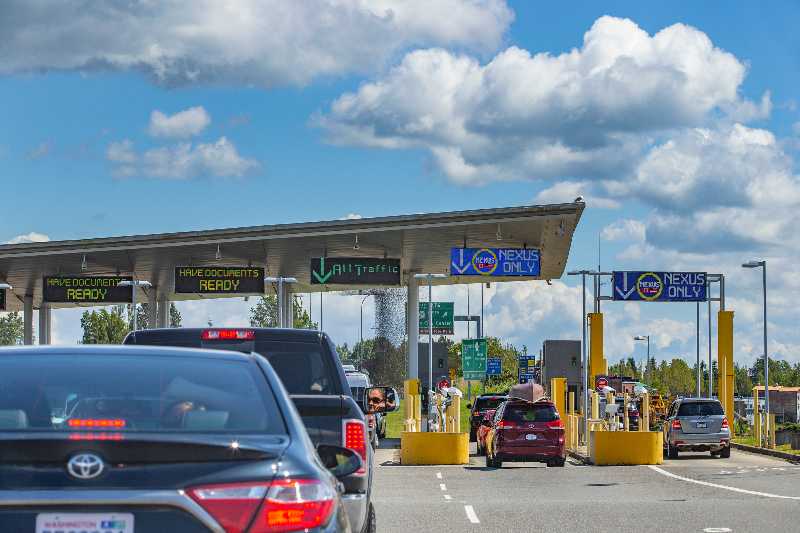News
US Auto Plants Shut Down As Protesters Block Canada Border

The Canadian trucker protest that overwhelmed Ottawa is now affecting US auto plants as well. Protesters are blocking the bridges connecting the US and Canada, threatening the operation of US auto plants in Michigan.
RELATED: GM Halts Pickup Production As Chip Shortage Continues
US Auto Plants Affected By Border Traffic Jam

Canadian demonstrators protesting the government’s vaccine mandates effectively paralyzed the capital of Ottawa. However, the protests are spreading to nearby US border states such as Michigan, which is home to a number of US auto plants.
The blockage threatens the flow of auto parts and finished cars. This can potentially create further disruptions in the supply chain.
On Monday, Canadian demonstrators set up blockades at the two bridges linking Ontario and Michigan. Both Blue Water and Ambassador bridges service thousands of trucks every day. Many of these trucks carry automobile parts and completed vehicles.
US Auto Plants Had To Shut Down
As a result of the continuous protests, traffic via the Ambassador bridge is now at a virtual standstill. In fact, only a small number of trucks managed to make it to Michigan from Ontario.
Meanwhile, the Blue Water bridge situation isn’t any better. The connecting route between Sarnia, Ontario, and Port Huron, Michigan is reporting delays of at least four and a half hours.
Meanwhile, the Chrysler Pacifica minivan plant became the first US auto plant to shut down. Chrysler officials temporarily halted production due to a lack of incoming parts.
Then, Ford announced Wednesday that it will make adjustments to its production as well. It announced that its Windsor plant is down, while its Oakville, Ontario plant will operate at a reduced capacity.
The company will continue to ship its engine inventory to support its US auto plants. In addition, General Motors also confirmed Wednesday that it will reduce operations for its Lansing, Michigan plant. This factory produces SUVs for Buick, Chevrolet, and GMC.
Other automakers operating in the US will assess their operations given the blockades at the two Canadian bridges. Brian Kingston, CEO of the Canadian Vehicle Manufacturers’ Association, issued a statement.
“Blockades at Canada’s borders are threatening fragile supply chains already under pressure due to pandemic related shortages and backlogs.” He added that the group is calling on cooperation from all sectors to resolve the situation and end the blockades.
Truckers Protesting In Canada
Since January, Canadian truckers have held up traffic in Ottawa. They are protesting mask and vaccine mandates imposed by the government of Prime Minister Justin Trudeau.
However, the Canadian PM slammed the demonstrators for their disruption. He said that they are “trying to blockade our economy, our democracy, and our fellow citizens’ daily lives.”
As Trudeau vowed to stop the protests, the opposite happened. The protest spread further along Ontario, up to the point it blocked traffic going to and from the US border.
Within hours, authorities on both sides of the border had to close the route. As a result, critical shipments of auto parts and fully-assembled vehicles ended up delayed.
Estimates place the Ambassador bridge is responsible for up to 20% of all US-Canadian trade. It serves 2.5 million trucks a year and handles about $100 billion in cross-border shipments.
Watch the Good Morning America video reporting that COVID restriction protesters block traffic at the US-Canada border:
Do you support the Canadian trucks protesting vaccine and mask mandates in Canada? Also, do you find their protests disruptive of the supply chain between the US and Canada?
Tell us what you think. Share your comments below.















